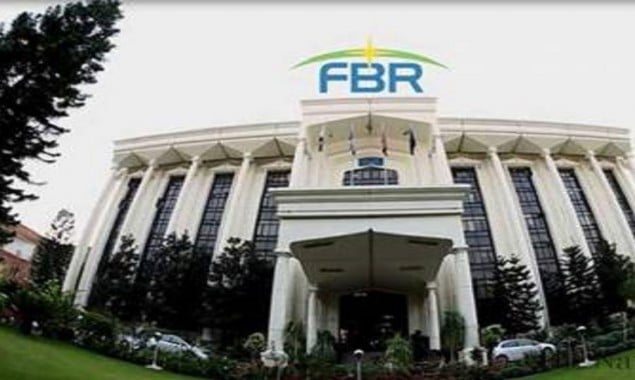
Federal Board of Revenue (FBR)
KARACHI: The amended income tax regime will have a negative impact on the profitability of the banking companies.
Analysts at Topline Securities said the amendment will have a negative impact on banks with Advance to Deposit Ratio (ADR) of less than 50 per cent, as they have to pay an additional tax on their entire income arising out from the investment in government securities rather than additional income as was the case previously.
The analysts said the banks with low ADR took the impact of the same in June 2021 financial results, and as a result, the effective tax rate of the banking sector increased from 38 per cent in the second quarter of 2020 to 40 per cent in the second quarter of 2021.
“This is likely to have an earnings impact of around 5-10per cent for the sector,” they added.
Through the Finance Act, 2021, the amendment has been incorporated in Rule 6C of the Seventh Schedule of the Income Tax Ordinance, 2001.
According to the amendment, the taxable income attributable to investments in the federal government securities would be taxed at 40 per cent (instead of 35 per cent standard tax rate applied to the banks) if the “Asset to Deposit Ratio” of the banks is less than 40 per cent.
Similarly, the tax rate of 37.5 per cent will be applied if the Asset to Deposit Ratio exceeds 40 per cent and is below 50 per cent. For the Asset to Deposit ratio of over 50 per cent, the standard rate of 35 per cent will be applied.
The Federal Board of Revenue (FBR) is likely to revise the clause by replacing the word ‘Asset’ with ‘Advance’ with all other things remaining the same. This means that the banks with the Advance to Deposit Ratio (ADR) of less than 50 per cent will be subject to additional taxation.
The new clause inserted in the Finance Act 2021 also had one key difference, as the last rule (Finance Act 2019) said: “Taxable income arising from additional income earned from additional investment in [the] federal government securities for the tax years 2020 and onwards, shall be taxed at the rate of 37.5 per cent.”
The idea of this increased taxation was to encourage the banks to increase their lending activity but this remains a big question mark of how effective this policy measure will be. The latest banking sector data (week ending September 3, 2021) shows that ADR of the sector is at 47 per cent, below the threshold of 50 per cent for additional taxation. This compares to ADR of 48 per cent in September 2020 and 45 per cent in June 2021.
The analysts said the weak foreclosure law and its implementation and risk aversion from the banks after the 2008 crisis will keep the banks shy from lending aggressively. Also, given the government’s increased borrowing requirements and rising fiscal deficits, the banks will remain the biggest lenders to the government.
To cater to this higher taxation, the banks can also adopt strategies such as revision in its deposit mobilisation strategy to maintain certain ADR and shedding of high cost deposits to improve margins.
The tax on total income of government securities rather than on additional income is negative for the banks. It is another asset class for the banks to invest in that is risk-free but offers lower yields than advances.
The banks can take their risk reward decisions themselves and even if there is any penalty on maintaining low ADR is to be imposed, it must be on additional income from investments in the government securities rather than the total income.
Catch all the Business News, Pakistan News, Breaking News Event and Latest News Updates on The BOL News
Download The BOL News App to get the Daily News Update & Follow us on Google News.




